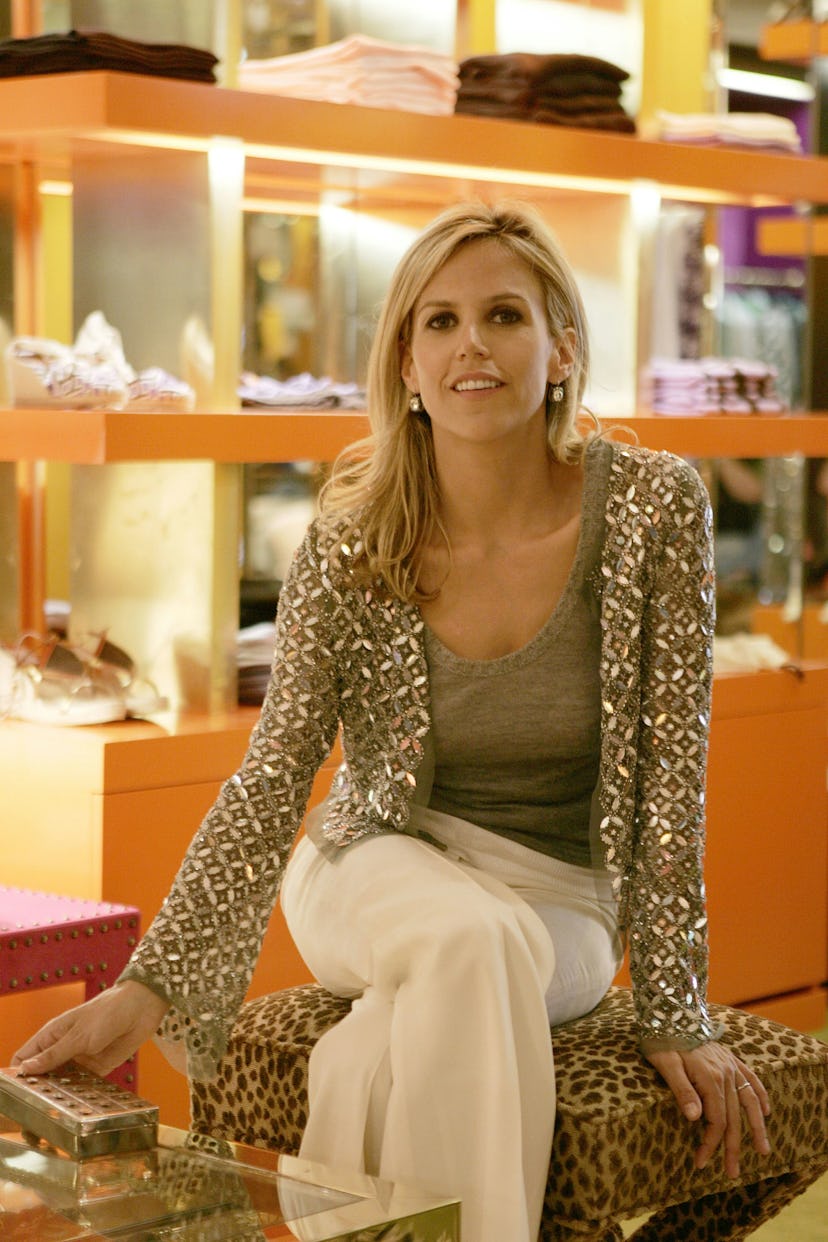Discover Affordable Luxury With the Latest Styles at Sedgars
Discover Affordable Luxury With the Latest Styles at Sedgars
Blog Article
The Influence of Lasting Practices on Modern Style Styles
Sustainable methods have actually reshaped modern-day fashion, driving a change towards environmentally friendly products and honest production. Developers now prefer organic cotton, recycled fabrics, and cutting-edge fabrics. Upcycling has changed waste into unique garments, while openness in sourcing has ended up being necessary. This development shows a growing recognition among customers regarding their acquiring choices. As the market adapts, new patterns emerge that obstacle conventional visual appeals. What might the future hold for style in this framework?
The Increase of Eco-Friendly Products
How have eco-friendly materials transformed the fashion business? The appearance of environmentally friendly products has considerably reshaped style, driving brand names to reevaluate their sourcing and manufacturing processes. These lasting alternatives, including natural cotton, hemp, and recycled polyester, provide a lowered environmental footprint contrasted to conventional textiles. Developers are currently prioritizing these products, acknowledging that customers increasingly favor brand names dedicated to sustainability.This shift has actually resulted in cutting-edge techniques, where fashion residences experiment with natural dyes and eco-friendly fabrics, enhancing both visual charm and environmental responsibility. On top of that, partnerships between developers and sustainability-focused firms have actually accelerated the integration of green materials into mainstream collections.As a result, the apparel industry is experiencing a steady yet extensive change, relocating towards a more sustainable future. This commitment not only mirrors evolving consumer worths but also shows the possibility for fashion to lead in environmental stewardship.
Upcycling: Transforming Waste Into Fashion
Upcycling has actually become a transformative pressure in the fashion business, converting disposed of materials into preferable garments and devices. This cutting-edge strategy not just minimizes waste however likewise motivates imagination and originality amongst developers. By repurposing things such as old garments, material scraps, and even non-textile materials, upcycling develops special items that narrate, reflecting specific style and ecological consciousness.Many contemporary brands and independent developers have welcomed upcycling as a core technique, interesting consumers that value sustainability and uniqueness. The process commonly includes strategies like embellishment, reconfiguration, or jumble, allowing for countless opportunities in design. Because of this, upcycled style resonates with those looking for to make ecologically liable options while still expressing individual aesthetics.In significance, upcycling not just mitigates the ecological impact of style waste however additionally promotes a brand-new culture of innovation and recognition for craftsmanship within the market.
Ethical Manufacturing: Fair Labor and Openness
Ethical manufacturing in fashion highlights the relevance of fair salaries for workers, making certain that laborers receive just settlement for their initiatives. Transparency in supply chains is important, permitting consumers to comprehend the beginnings of their garments and the conditions under which they are made. Furthermore, honest sourcing techniques advertise responsibility in selecting materials, enhancing the commitment to sustainability and social justice.
Fair Incomes for Workers
While the apparel industry significantly embraces sustainable methods, making certain fair salaries for workers stays a crucial component of honest manufacturing. Fair earnings not just encourage employees but likewise improve the general top quality of life for people in the supply chain. Numerous brands are currently taking on plans that focus on fair settlement, recognizing that a lasting future can not be constructed on exploitation. By committing to reasonable pay, business cultivate commitment and enhance efficiency amongst their workers (Sedgars Designer Fashion). Furthermore, consumers are coming to be a lot more familiar with labor problems and are increasingly demanding transparency pertaining to employees' rights. Therefore, brands that focus on reasonable wages are not just lining up with ethical standards however are likewise positioning themselves competitively in a market that worths social duty
Openness in Supply Chains
The dedication to reasonable salaries is intrinsically linked to the broader concern of openness in supply chains within the apparel industry. Openness assurances that consumers are educated about the origins of their garments and the problems under which they are produced. Brand names that prioritize openness usually publish comprehensive records describing their supply chain processes, labor methods, and sourcing of materials. This visibility promotes trust fund and loyalty amongst consumers that increasingly require moral techniques. Moreover, openness aids to hold business accountable for their labor methods, making it possible for analysis and encouraging enhancements. By exposing the complexities of their supply chains, brands can add to an extra equitable fashion ecological community, eventually advertising not just moral production however additionally sustainable intake amongst their clientele.

Honest Sourcing Practices
As consumers end up being extra mindful of the influence of their getting decisions, brand names are progressively adopting honest sourcing techniques that prioritize fair labor and environmental sustainability. These techniques include making sure that workers get reasonable wages, secure working conditions, and are treated with self-respect. Many fashion companies are relocating far from exploitative labor practices and are instead working together with suppliers who adhere to honest requirements. Openness in sourcing further enhances consumer trust, as brands divulge their supply chain methods, permitting clients to make educated selections. This change in the direction of honest sourcing not just adds to social duty yet also resonates with an expanding group that worths sustainability in fashion. Consequently, ethical sourcing is becoming a defining attribute of modern-day fashion brand names.
The Duty of Modern Technology in Lasting Fashion
The fashion market has long been connected with waste and contamination, innovation is progressively transforming it into a much more sustainable sector. Developments such as 3D printing enable developers to create garments with less product waste, while electronic textile printing enables on-demand production, decreasing excess stock. Additionally, developments in recycling modern technologies are helping with the repurposing of textiles, minimizing land fill contributions.In addition, information analytics and fabricated knowledge assistance brands forecast fads a lot more accurately, guaranteeing they produce only what is needed. Blockchain technology boosts openness in supply chains, allowing customers to trace the beginnings of their apparel and confirm sustainable techniques. Furthermore, wearable technology is advancing, promoting sturdiness and functionality in style products. Through these technical advancements, the garment industry is slowly adopting an extra circular economic situation design, cultivating sustainable techniques that could redefine its ecological influence.

Aware Consumerism: Moving Buyer Mindsets
Mindful consumerism is reshaping the apparel industry as buyers significantly prioritize moral style choices. This change is driven by a need for transparency, engaging brands to reveal their techniques and supply chains. Therefore, brand commitment is progressing, with customers more probable to support those that straighten with their values.
Honest Style Choices
Moving customer state of minds in the direction of ethical fashion selections reflects a growing awareness of the effect of customer actions on the environment and society. Customers are increasingly prioritizing brand names that stress moral production methods, lasting products, and fair labor conditions. This modification is sustained by a need to sustain companies that line up with individual worths, advertising an extra responsible apparel industry. Because of this, brands are adjusting their strategies, incorporating transparency and sustainability into their core objectives. Honest style selections not only test typical retail practices but likewise encourage consumers to assess the lifecycle of their garments. This change indicates a collective action in the direction of a more conscious approach to fashion, where the effects of purchases prolong past mere appearances to incorporate broader social and environmental considerations.
Impact of Openness

Brand Commitment Shift
What drives customers to remain devoted to brand names in today's fashion landscape? Increasingly, sustainability plays an essential function. As awareness of ecological issues expands, customers are gravitating towards brand names that demonstrate honest techniques and transparency. This shift towards mindful consumerism has actually led to a reevaluation of standard brand name loyalty, where worths straighten much more very closely with individual values. Brands that prioritize sustainable materials, reasonable labor techniques, and environment-friendly manufacturing approaches are frequently awarded with customer commitment. This advancement is mirrored in acquiring choices, as buyers are more ready to support brand names that contribute positively to society. Sustainability has ended up being not just a marketing tool, but a specifying factor in establishing long-term brand name links with a much more critical and socially conscious customer base. Mindful The Influence of Lasting Fashion on Trends
As customers progressively focus on sustainability, the garment industry is experiencing a significant makeover in fads. This change has led to the surge of green products, such as organic cotton, recycled polyester, and innovative fabrics obtained from lasting resources. Designers are increasingly concentrated on creating versatile, durable garments that motivate mindful intake, relocating away from fast style's fleeting styles.Moreover, moral methods are becoming a hallmark of brand name identification, with numerous firms highlighting their dedication to fair labor and ecological stewardship. The influence of lasting fashion is additionally apparent in the appeal of thrift purchasing and garments swaps, promoting a circular economy and lowering waste.Fashion shows and campaigns currently typically include lasting collections, highlighting the visual charm of eco-conscious selections. In general, the impact of lasting fashion on patterns mirrors a broader societal change towards accountable consumerism, forming the future of the industry in profound methods.
Future Technologies in Eco-Conscious Design
The development of lasting style trends prepares for future technologies in eco-conscious design. As consumers significantly focus on ecological obligation, developers are checking out sophisticated materials and strategies. Biodegradable materials, such as see it here mycelium and algae-based textiles, are getting traction, assuring to lower waste and reliance on petroleum-based fibers.Moreover, developments in innovation are leading the means for ingenious manufacturing approaches. 3D printing, for circumstances, enables on-demand production, minimizing excess inventory and resource consumption. Circular style models are additionally arising, stressing recycling and upcycling, allowing garments to have actually expanded life cycles.Collaboration in between brand names and innovation firms is essential for these developments. By leveraging data analytics and expert system, developers can develop more lasting supply chains and lower their carbon impacts. As eco-conscious practices remain to advance, they basically change the fashion landscape, pressing the limits of imagination while securing the planet.
Frequently Asked Inquiries
Exactly How Can I Recognize Sustainable Fashion Brands When Purchasing?
To recognize lasting fashion brands while shopping, one need to seek qualifications, look at materials, analyze manufacturing transparency, and study brand worths. Designer Store Sedgars. Involving with customer reviews and sustainability records can better assist educated acquiring choices
Are Second-Hand Garments Considered Sustainable Style?
Pre-owned clothing are usually related to as sustainable fashion because of their role in lowering waste and prolonging the lifecycle of garments. By acquiring secondhand products, consumers add to an extra eco-friendly garments economy.
What Is the Ecological Effect of Quick Fashion?
The environmental influence of rapid style is considerable, adding to pollution, too much waste, and resource deficiency. The industry's fast production cycles often prioritize profit over eco-friendly sustainability, worsening climate modification and damaging ecosystems worldwide.
How Do Sustainable Practices Affect Fashion Pricing?
Lasting practices often result in higher manufacturing expenses as a result of moral sourcing and environmentally friendly products. Sedgars Designer Fashion. Consequently, fashion rates might enhance, mirroring the financial investment in environmental duty and reasonable labor techniques, which can affect customer getting choices
Can Lasting Fashion Be Elegant and Trendy?
The inquiry of whether lasting fashion can be stylish and trendy commonly arises. Many developers now mix eco-friendly materials with innovative designs, confirming that sustainability and contemporary looks can exist side-by-side, attracting a fashion-conscious audience. Sustainable methods have actually reshaped contemporary style, driving a change in the direction of green products and moral production. While the hop over to these guys style industry significantly embraces sustainable methods, making certain fair incomes for employees remains an important component of honest manufacturing. Mindful consumerism is improving the style industry as customers significantly prioritize moral fashion choices. The impact of lasting style is likewise apparent in the appeal of thrift buying and clothing swaps, lowering and promoting a round economy waste.Fashion programs and projects currently frequently feature sustainable collections, emphasizing the aesthetic charm of eco-conscious choices. To identify lasting style brands while shopping, one ought to look for qualifications, scrutinize materials, assess production openness, and research study brand values.
Report this page